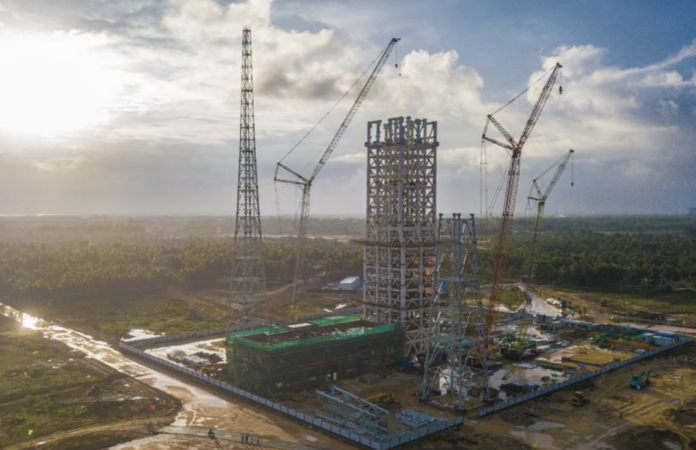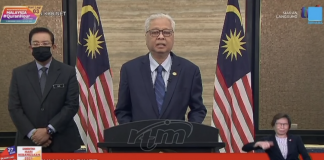BEIJING, Feb. 27 – China is projected to make about 100 space launch missions this year, setting a new record for the country, according to information released at a press conference on Monday.
The launches include the maiden flight from China’s first commercial spacecraft launch site, in addition to more satellite lift-offs to form constellations, according to the press conference.
China’s first commercial spacecraft launch site is now under construction in the city of Wenchang, in south China’s island province of Hainan.
The China Aerospace Science and Technology Corporation (CASC), the country’s rocket series developer and the leading force of the country’s space industry, released the 2023 blue book of China aerospace science and technology at the same press conference.
The CASC is scheduled to make nearly 70 space launch missions, putting over 290 spacecraft into space this year. It will implement the first flight tasks of Long March-12, and complete two cargo spaceship missions, two crewed launch missions, and two crewed return missions for China’s space station.
The Long March-12 is China’s first single-core stage liquid launch vehicle with a diameter of 3.8 meters. It has a two-stage configuration propelled by six liquid oxygen/kerosene engines.
The new rocket is designed with a carrying capacity of not less than 10 tonnes in near-Earth orbit and not less than 6 tonnes in 700-km sun-synchronous orbit, which will improve the country’s transport capability in low-orbit satellite constellations and sun-synchronous orbit.
The Long March-12 will be launched in the country’s first commercial spacecraft launch site.
In the first half of this year, China is set to launch Queqiao-2, a relay satellite for communications between the far side of the moon and Earth, and the Chang’e-6 lunar probe, a mission to collect samples from the far side of the moon, the first of its kind in human history.
Scientific instruments from France, Italy and the European Space Agency/Sweden will be onboard the lander of the Chang’e-6 mission, with a Pakistani payload on the orbiter, according to the China National Space Administration.
A detection satellite for ocean salinity, an electromagnetic monitoring satellite and an astronomical probe co-developed by China and France are also on CASC’s task list.
In 2024, the CASC is planning to continuously promote the development of more than 200 spacecraft, including the new-generation near-Earth manned spacecraft, the Chang’e-7 lunar probe, the Tianwen-2 probe for asteroid sampling and the geostationary microwave probe satellite, according to the blue book.
In 2023, China carried out 67 space launch missions, with this number ranking second in the world, and put 221 spacecraft into space, already setting a record for China.
















